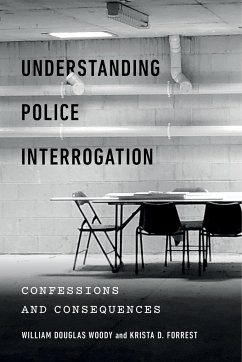Uses techniques from psychological science and legal theory to explore police interrogation in the United States Understanding Police Interrogation provides a single comprehensive source for understanding issues relating to police interrogation and confession. It sheds light on the range of factors that may influence the outcome of the interrogation of a suspect, which ones make it more likely that a person will confess, and which may also inadvertently lead to false confessions. There is a significant psychological component to police interrogations, as interrogators may try to build rapport with the suspect, or trick them into thinking there is evidence against them that does not exist. Also important is the extent to which the interrogator is convinced of the suspect's guilt, a factor that has clear ramifications for today's debates over treatment of black suspects and other people of color in the criminal justice system. The volume employs a totality of the circumstances approach, arguing that a number of integrated factors, such as the characteristics of the suspect, the characteristics of the interrogators, interrogation techniques and location, community perceptions of law enforcement, and expectations for jurors and judges, all contribute to the nature of interrogations and the outcomes and perceptions of the criminal justice system. The authors argue that by drawing on this approach we can better explain the likelihood of interrogation outcomes, including true and false confessions, and provide both scholars and practitioners with a greater understanding of best practices going forward.
Hinweis: Dieser Artikel kann nur an eine deutsche Lieferadresse ausgeliefert werden.
Hinweis: Dieser Artikel kann nur an eine deutsche Lieferadresse ausgeliefert werden.








